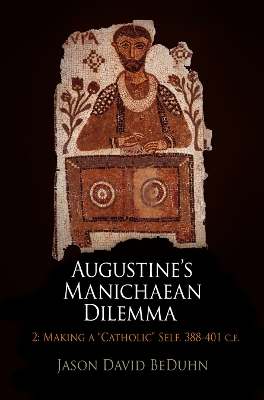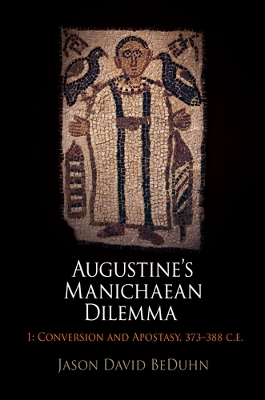Divinations: Rereading Late Ancient Religion
2 total works
By 388 C.E., Augustine had broken with the Manichaeism of his early adulthood and wholeheartedly embraced Nicene Christianity as the tradition with which he would identify and within which he would find meaning. Yet conversion rarely, if ever, represents a clean and total break from the past. As Augustine defined and became a "Catholic" self, he also intently engaged with Manichaeism as a rival religious system. This second volume of Jason David BeDuhn's detailed reconsideration of Augustine's life and letters explores the significance of the fact that these two processes unfolded together.
BeDuhn identifies the Manichaean subtext to be found in nearly every work written by Augustine between 388 and 401 and demonstrates Augustine's concern with refuting his former beliefs without alienating the Manichaeans he wished to win over. To achieve these ends, Augustine modified and developed his received Nicene Christian faith, strengthening it where it was vulnerable to Manichaean critique and taking it in new directions where he found room within an orthodox frame of reference to accommodate Manichaean perspectives and concerns. Against this background, BeDuhn is able to shed new light on the complex circumstances and purposes of Augustine's most famous work, The Confessions, as well as his distinctive reading of Paul and his revolutionary concept of grace. Augustine's Manichaean Dilemma, Volume 2 demonstrates the close interplay between Augustine's efforts to work out his own "Catholic" persona and the theological positions associated with his name, between the sometimes dramatic twists and turns of his own personal life and his theoretical thinking.
Augustine of Hippo is history's best-known Christian convert. The very concept of conversio owes its dissemination to Augustine's Confessions, and yet, as Jason BeDuhn notes, conversion in Augustine is not the sudden, dramatic, and complete transformation of self we likely remember it to be. Rather, in the Confessions Augustine depicts conversion as a lifelong process, a series of self-discoveries and self-departures. The tale of Augustine is one of conversion, apostasy, and conversion again.
In this first volume of Augustine's Manichaean Dilemma, BeDuhn reconstructs Augustine's decade-long adherence to Manichaeism, apostasy from it, and subsequent conversion to Nicene Christianity. Based on his own testimony and contemporaneous sources from and about Manichaeism, the book situates many features of Augustine's young adulthood within his commitment to the sect, while pointing out ways he failed to understand or put into practice key parts of the Manichaean system. It explores Augustine's dissatisfaction with the practice-oriented faith promoted by the Manichaean leader Faustus and the circumstances of heightened intolerance, anti-Manichaean legislation, and pressures for social conformity surrounding his apostasy.
Seeking a historically circumscribed account of Augustine's subsequent conversion to Nicene Christianity, BeDuhn challenges entrenched conceptions of conversion derived in part from Augustine's later idealized account of his own spiritual development. He closely examines Augustine's evolving self-presentation in the year before and following his baptism and argues that the new identity to which he committed himself bore few of the hallmarks of the orthodoxy with which he is historically identified. Both a historical study of the specific case of Augustine and a theoretical reconsideration of the conditions under which conversion occurs, this book explores the role religion has in providing the materials and tools through which self-formation and reformation occurs.

